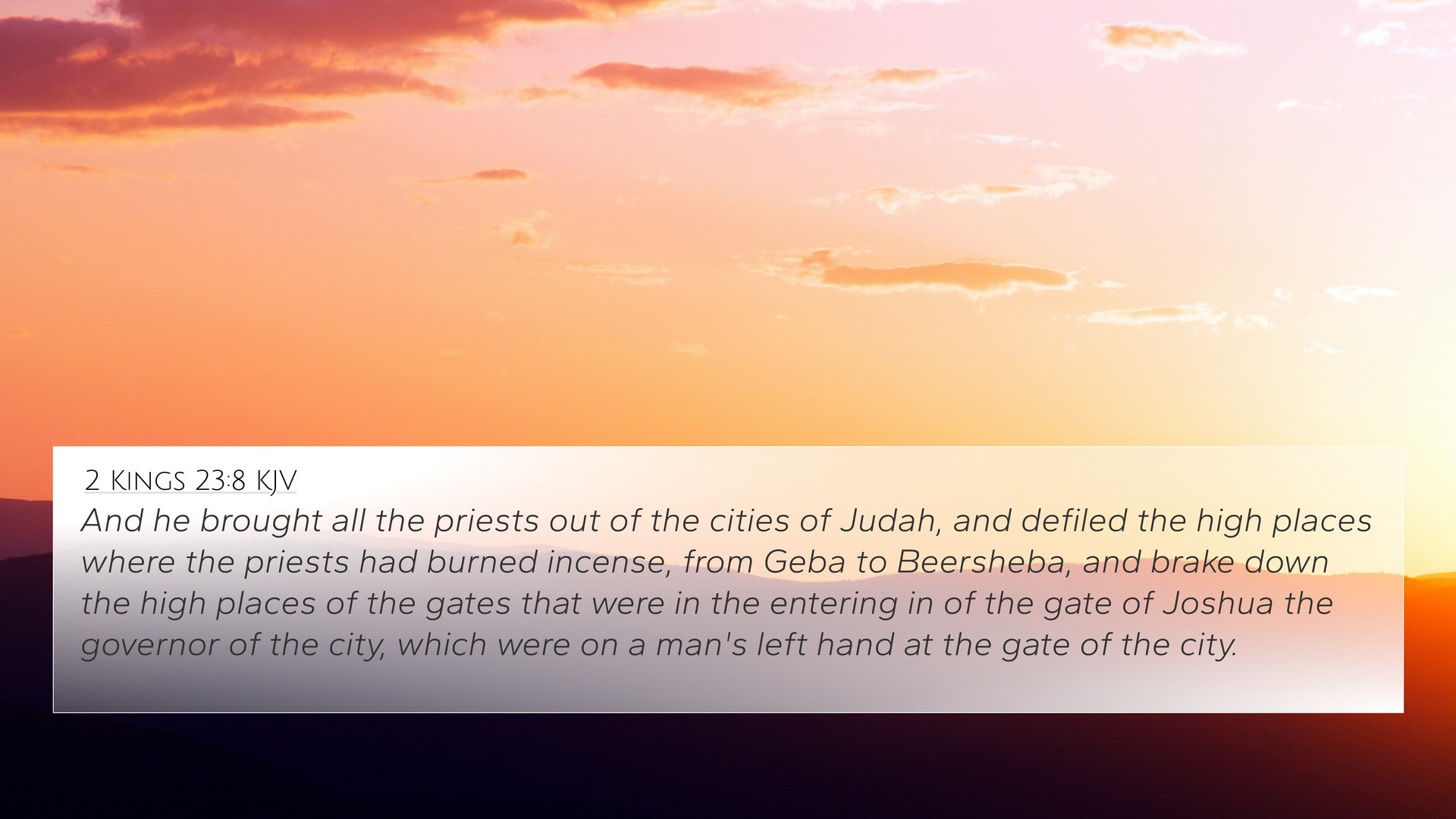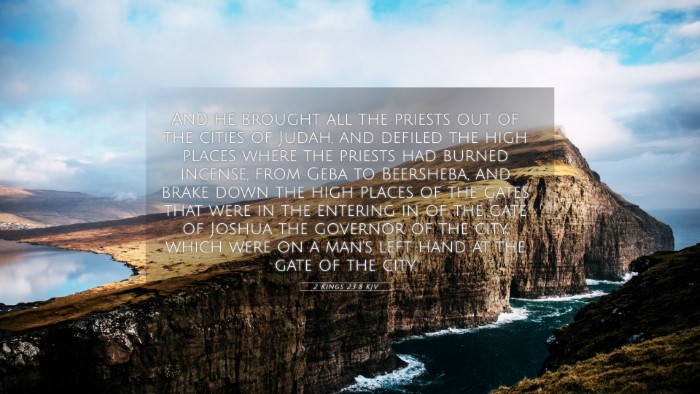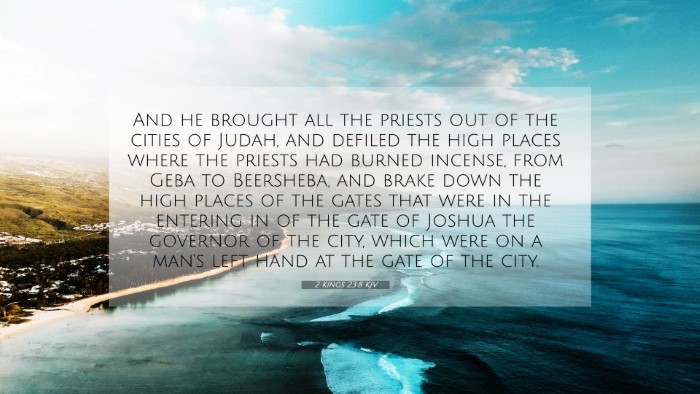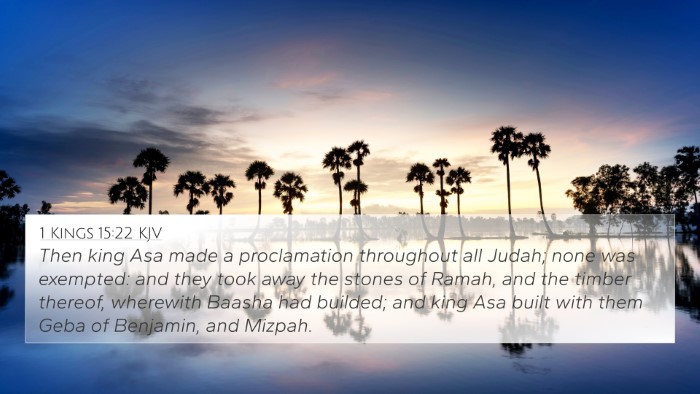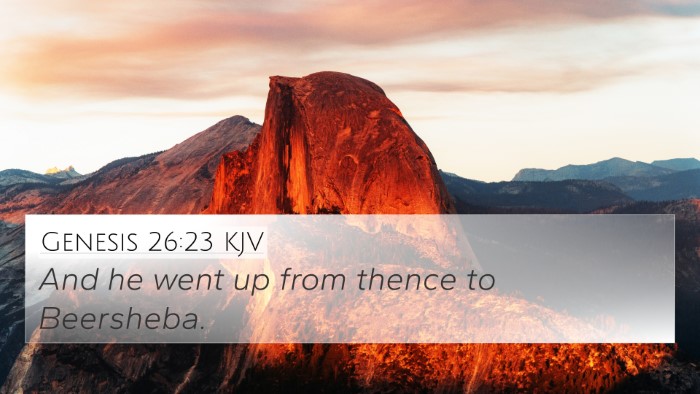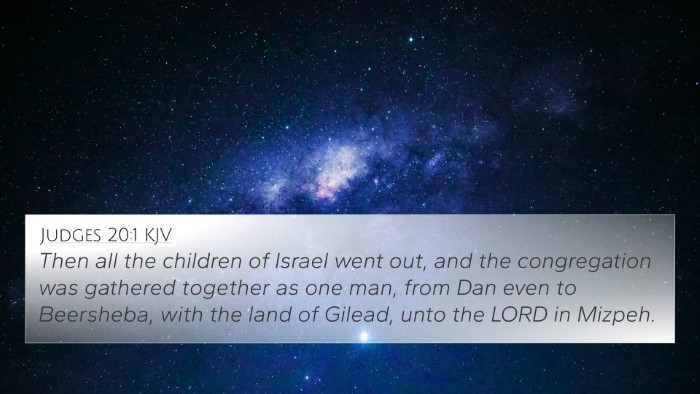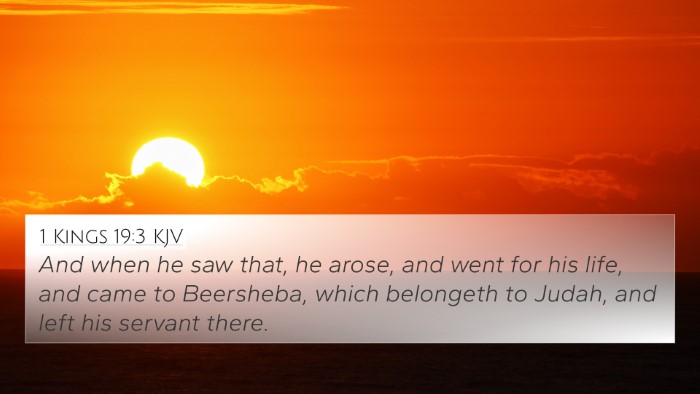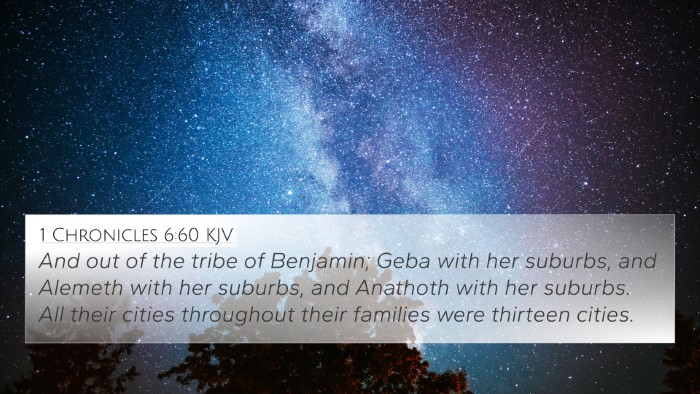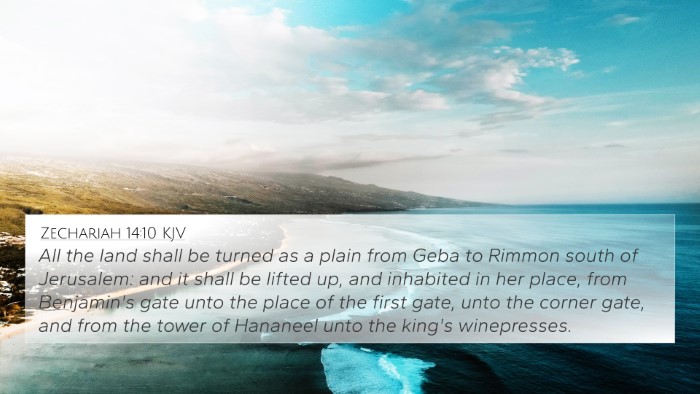Understanding 2 Kings 23:8
Verse: 2 Kings 23:8 - "And he brought all the priests out of the cities of Judah, and defiled the high places where the priests had burned incense, from which Gibeah to Beersheba, and broke down the high places of the gates that were in the entry of the gate of Joshua, the governor of the city, which were on a man’s left hand at the gate of the city."
Meaning and Interpretation
This verse describes a significant reform initiated by King Josiah, reflecting his dedication to the worship of Yahweh and the rejection of idolatry. The text reveals both an act of purification and the eradicating of corrupted worship practices that had developed in Judah.
Historical Context
King Josiah ruled during a time when Judah was steeped in idolatry, heavily influenced by previous kings who promoted the worship of false gods. The reforms he enacted were vital in returning the people to the worship of the true God, as directed by the rediscovered Book of the Law (2 Kings 22:8).
Key Insights from Commentaries
- Matthew Henry: Emphasizes the importance of Josiah's actions in purging the worship sites of idols. He notes that Josiah acted decisively, demonstrating true repentance and zeal for God's law.
- Albert Barnes: Points out that this verse illustrates the comprehensive nature of Josiah's reforms. He brought all the priests from the cities of Judah indicating a thorough commitment to restore proper worship throughout the land.
- Adam Clarke: Discusses the geographical significance, mentioning how the high places from Gibeah to Beersheba were key centers of idolatrous worship that needed to be addressed. Clarke also underlines the symbolic act of defilement, representing a complete rejection of false gods.
Thematic Connections
The actions taken in 2 Kings 23:8 can be linked to various themes throughout the Bible, particularly concerning divine worship and idolatry. This verse serves as a pivotal reference point for understanding the historic struggle between true worship and idolatry in Israel.
Cross-References
- 2 Kings 22:8-11: The finding of the Book of the Law and its impact on Josiah's reforms.
- Deuteronomy 12:2-3: God's command to destroy high places and idols in the Promised Land.
- 2 Chronicles 34:4-7: A parallel account of Josiah's reforms and purging of idolatry.
- Jeremiah 1:1-3: Context of the prophetic ministry during Josiah's reign, affirming the work of reform he initiated.
- Ezekiel 14:4: Addresses the issue of idols in the hearts of people which relates to Josiah's reforms.
- Exodus 34:13-14: God's prohibition against making covenants with idol worship practices.
- Isaiah 2:8: Prophecy indicating that the land was filled with idols, reflective of Josiah’s time.
- Micah 1:5: Mention of high places similar to those Josiah defiled, showcasing the practice of idolatry.
- 1 Kings 13:2: A prophecy against the altars in Bethel, showing an ongoing concern for proper worship.
- Romans 12:1: The New Testament call for worship as a living sacrifice, paralleling the desire for pure worship seen in Josiah.
Practical Application
The reforms of Josiah demonstrate the necessity of evaluating our worship practices and ensuring they align with God’s will. Similar to Josiah's purging of idolatry, modern believers are called to examine their own lives for elements that may distract from true devotion to God.
Conclusion
2 Kings 23:8 serves as a crucial reminder of the importance of proper worship and the continual need for reform in our spiritual lives. It underscores the themes of cleansing, purging, and realignment with God’s word, applicable to both the Old and New Testaments.
Tools for Further Study
For those interested in deeper explorations of scriptural connections, the following resources can be beneficial:
- Bible Concordance: A comprehensive tool for finding verses and their relationships.
- Cross-Reference Bible Study Guides: Designed to help link scriptures in insightful ways.
- Thematic Bible Study Materials: Focused on exploring the interconnections of biblical themes.
Through understanding cross-referencing in biblical texts, readers can uncover deeper meanings and the interwoven nature of scripture, enhancing their study and personal growth in faith.
